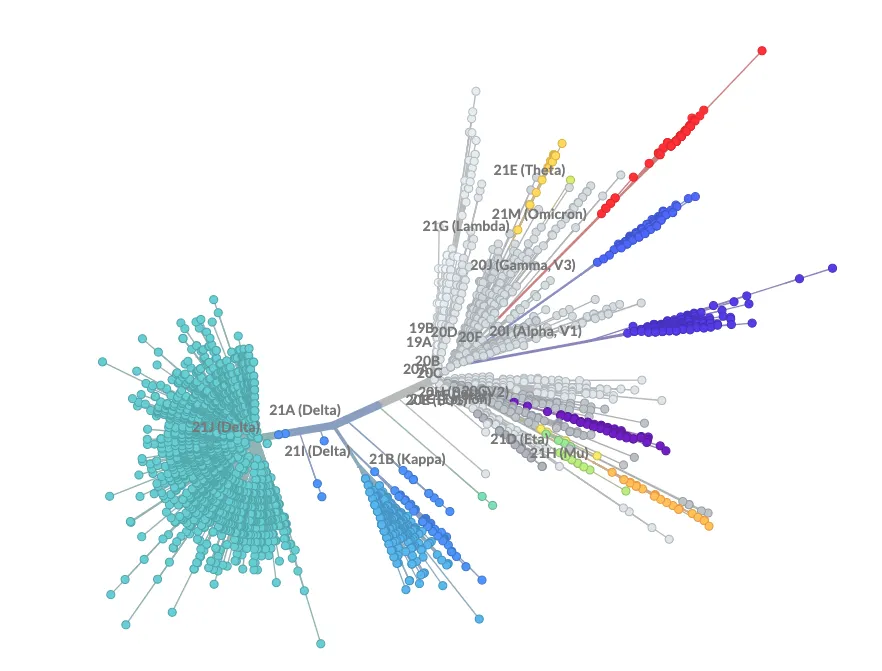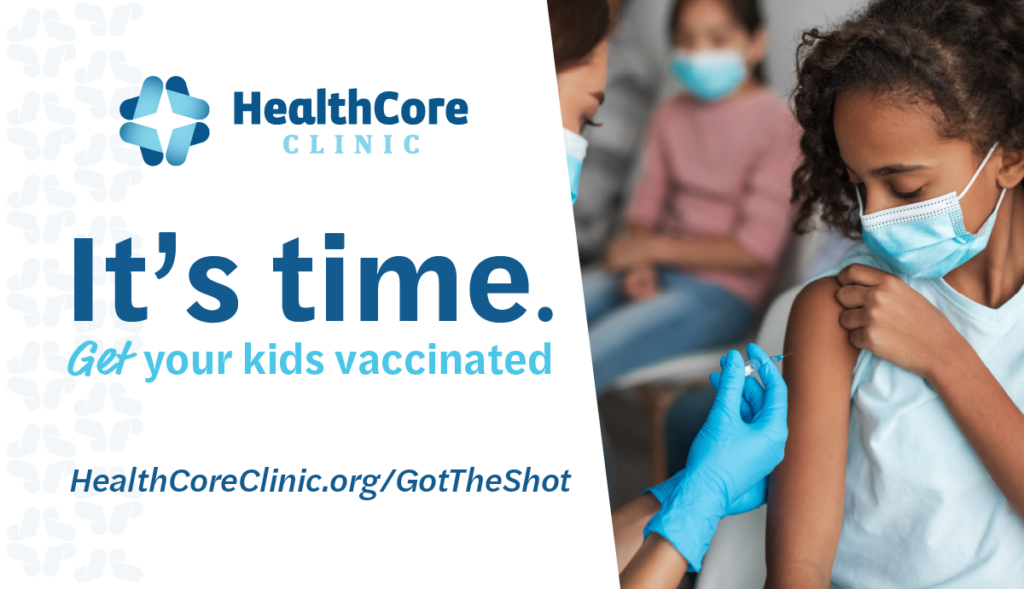Omicron Covid Virus: Symptoms, Treatment, and Prevention
Dec 23, 2021
The dizzying speed of Omicron’s spread has left Americans questioning much of what they know about Covid-19. Though much remains uncertain, experts are beginning to understand more about the variant and how it affects people who are vaccinated, unvaccinated, or who have had a previous Covid infection. For example, people who are exposed to Omicron appear to get sick faster and may have symptoms that are different than those of other variants.
The Omicron Covid Variant is a variant of the SARS-CoV-2 virus. There is still substantial uncertainty regarding Omicron and a lot of research underway to evaluate its transmissibility, severity and reinfection risk.
When a virus such as Covid-19 is circulating widely and causing numerous infections, the likelihood of the virus mutating increases. The more opportunities a virus has to spread, the more opportunities it has to undergo changes.
New variants like Omicron Covid Variant in 2022 are a reminder that the Covid-19 pandemic is far from over. It is therefore essential that people get the vaccine when available to them and continue to follow existing advice on preventing the spread of the virus, including physical distancing, wearing masks, regular handwashing and keeping indoor areas well ventilated.
This article covers Omicron symptoms, Omicron treatment, Omicron Prevention, and where to get Covid testing in Wichita. If you are not yet vaccinated, you can schedule a Covid Vaccine appointment at HealthCore Clinic or come during walk-in hours.
Omicron Variant Symptoms: Is It Severe?
Omicron Symptoms
Omicron Variant symptoms may be different than those of previous strains. But it’s still Covid, and it can still cause severe disease. The most common Omicron symptoms are:
- Cough
- Fatigue or tiredness
- Congestion and runny nose
- Sore throat
- Headache
Unlike in previous variants, the loss of taste and smell seems to be uncommon, doctors say.
Omicron vs Delta Virus
Early evidence suggests that for most people, at least those who are up to date on their Covid vaccines, Omicron appears to cause milder illness that can resemble the common cold, another form of the coronavirus.
Is Omicron more contagious?
Yes, Omicron is highly contagious and thus spreads more quickly than other variants. Based on the information available, it is likely that Omicron will outpace the Delta variant where there is COVID-19 transmission in the community.
There are close to 50 mutations in the Omicron Covid Variant compared to the original SARS-CoV-2 virus detected in 2019. These changes are manifesting in several key ways. One of the most important areas is in the spike protein of the virus. This is the part of the virus that comes into contact with human cells, and a prominent target for the immune system. Antibodies attach to the spike protein and stop the virus from causing an infection. This makes the spike protein critical for how the virus functions and for how the immune system stops it.
Omicron has 36 mutations in its spike protein, compared to 10 in Alpha, 12 in Gamma, and 9 in Delta. Within its spike protein, Omicron has mutations in the part of the spike that connects directly to a receptor called ACE2 on human cells. Omicron’s mutations seem to increase its affinity for ACE2, allowing it to more efficiently infect cells, thereby increasing its reproduction rate and transmissibility. There are mutations in other parts of Omicron’s spike protein as well. Because of these changes, antibodies have a harder time recognizing and sticking to Omicron’s spike. That may explain why the Omicron Covid Variant seems to cause more reinfections and breakthrough infections in vaccinated people compared to other variants.
The Covid-19 vaccines remain effective against the Omicron Covid Variant since they act on how the virus replicates instead of targeting its outer structure. Being vaccinated and taking precautions such as avoiding crowded spaces, keeping your distance from others, and wearing a mask is critical in helping to prevent the spread of Covid-19 and preventing Omicron — we know these actions have been effective against other Covid variants.
Is Omicron more severe?
Early findings suggest that Omicron might be less severe than the 2021 Delta Covid Variant, but more data is needed. The World Health Organization (WHO) warns that it should not be dismissed as “mild.” All variants of Covid-19 can cause severe disease or death, including the Delta variant that is still dominant worldwide, which is why preventing the spread of the virus and reducing your risk of exposure to the virus is so important.

Omicron Treatment & Omicron Prevention
Omicron Covid Treatments
There are Omicron variant treatments available and new options are in development. New options are essential because a major staple in our fight against Covid-19, monoclonal antibodies, is expected to be less effective for the new wave. For instance, the FDA has approved monoclonal antibodies as a treatment for Covid-19 patients at risk of progressing to severe disease. It recently expanded this approval to include monoclonal antibodies for children as well. However, this treatment has to be administered in a clinic or hospital, as an IV infusion or as four shots — but against past waves of Covid, it has been highly effective, with one high-quality study finding an 85% reduction in the risk of hospitalization or death.
Unfortunately, it seems likely at this point that most monoclonal antibodies are much less effective at preventing Omicron, for the same reason that our native antibodies are somewhat less effective against Omicron — the new variant is different than the virus they were trained to fight. The greatest tools we have against preventing Omicron at this time are vaccines, masks, quarantining, and social distancing.
Omicron Variant Prevention
Visit our Covid-19 Info Page to see the best ways to prevent Covid-19 infection — not much has changed in terms of preventing the Omicron variant. Vaccines are still the best way to prevent Omicron but it’s important to continue practicing wearing masks and social distancing as much as possible.
If you are showing symptoms or have been in contact with someone who is Covid positive, please visit a Covid testing location and quarantine until you receive a negative Covid test for Omicron.

Preventing Omicron in 2022
Are the COVID-19 vaccines effective against Omicron?
The World Health Organization reports that the currently available COVID-19 vaccines offer significant protection against severe disease and death in relation to the Omicron variant.
The Covid-19 vaccines are optimized to help the immune system target the SARS-CoV-2 spike protein, and the changes in Omicron do seem to render the first generation of vaccines less effective. But their efficacy against Omicron isn’t zero, and with booster doses, protection from the variant improves dramatically. Moderna reported that a half-dose booster of its mRNA vaccine raised antibody levels against omicron 37-fold, while a full dose raised antibody levels 83-fold compared to just the two initial doses. That echoes a report from Pfizer that a third dose of its vaccine made it just as effective against Omicron as the initial doses were against the original virus.
It is important to be vaccinated to protect against Omicron and the other widely circulating variants, such as Delta. If your vaccination involves two doses, it’s important to receive both in order to have the maximum protection and to then get a booster dose. HealthCore Clinic is an official vaccine site in Wichita, KS with all 3 vaccines available, including the Pfizer vaccine for kids ages 5-11.
Will a past infection protect me from Omicron?
A past infection of Covid will not provide nearly as much protection as you will get from a Covid-19 vaccine. Early evidence suggests that previous infection could offer less protection against the Omicron Covid Variant in comparison to other variants of concern, such as Delta. You should get vaccinated even if you’ve previously had Covid-19. While people who recover from Covid-19 may develop some natural immunity to the virus, we do not yet know how long it lasts or how well you are protected. Covid vaccines offer much more reliable protection.
Covid Tests, Vaccination, & Health Tips
How to protect yourself from Omicron
The most important thing you can do is reduce your risk of exposure to the virus is to get vaccinated and boosted. To protect yourself and your loved ones. Make sure to:
- Wear a mask that covers your nose and mouth.
- Keep your hands clean when you put on and remove your mask.
- Keep a physical distance of at least 3 feet from others.
- Avoid poorly ventilated or crowded spaces.
- Open windows to improve ventilation indoors.
- Wash your hands regularly.
- Get vaccinated. COVID-19 vaccines are safe, effective, and free.
- If you are eligible for a booster shot, get boosted.
While the Omicron Covid Variant may be more dangerous than its relatives, there are plenty of ways to contain its destruction. Vaccination is critical, including getting boosters. Slowing transmission between people by wearing effective masks, social distancing, and ensuring adequate ventilation is also important. Testing for Covid-19 to identify potentially asymptomatic cases and to commence treatment early in the course of the illness is also imperative.
The Omicron Covid Variant is not going to be the last major variant of SARS-CoV-2, and the steps taken to mitigate the current wave will help forestall the next one. If you have not yet received a Covid-19 vaccine, or are not fully vaccinated, please schedule your vaccine today. It’s time. Together we can achieve immunity in our community.

Sí, hablamos español.
¿Hablas español?
Visite nuestra página web de la vacuna contra el Covid-19 en español.